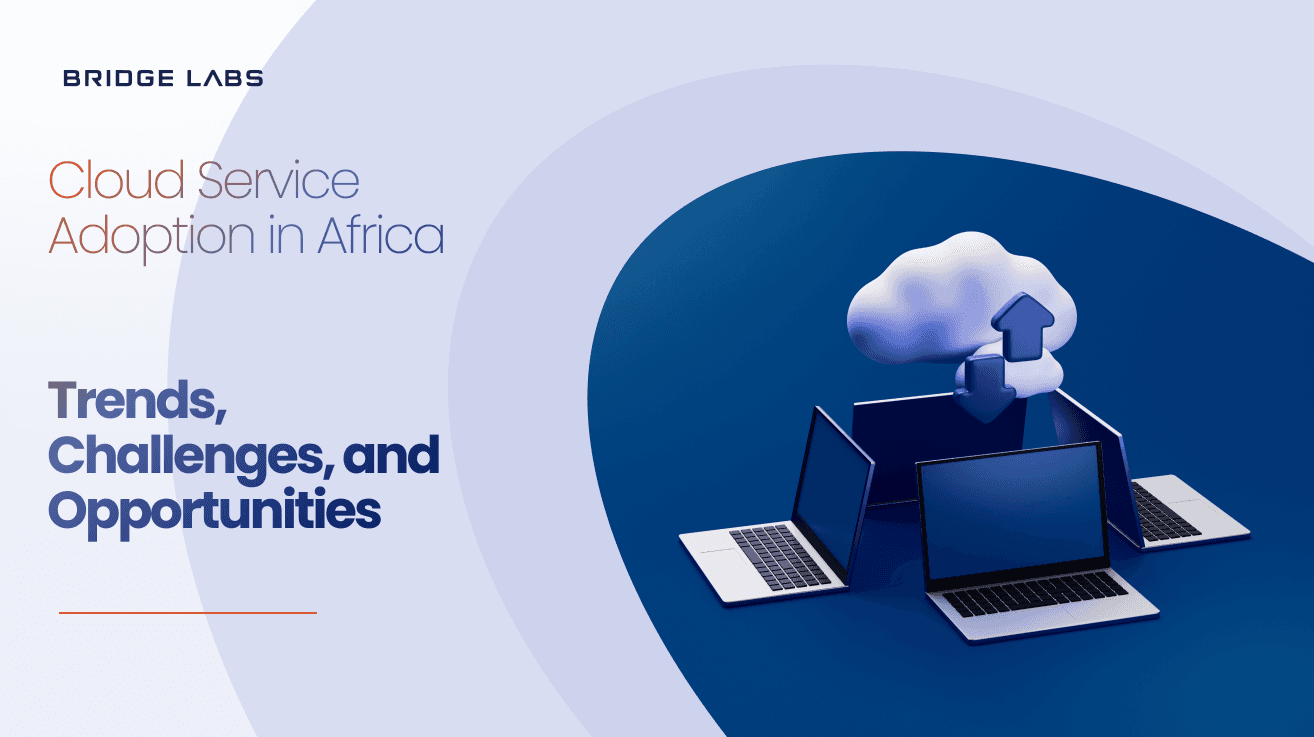Introduction
Cloud computing has greatly changed the way businesses operate globally, offering unparalleled scalability, cost savings, and flexibility.
In Africa, cloud service adoption is steadily gaining momentum, presenting a mix of exciting opportunities and unique challenges.
But what does the data say about the state of cloud adoption across the continent?
Let’s dive into the insights, with the help of an informative infographic that breaks down cloud adoption rates in various African countries.
Spoiler alert: This is going to be a riveting journey through this rapidly evolving domain!
Current Trends in Cloud Service Adoption
Africa is embracing the cloud, and the numbers prove it. According to our featured infographic, adoption rates have surged in countries like South Africa, Nigeria, and Kenya. These nations are leading the charge thanks to their established tech ecosystems, progressive regulatory environments, and burgeoning startup cultures.
Industries like fintech and e-commerce have become cloud champions, leveraging the technology to drive efficiency, improve customer experiences, and scale operations seamlessly. On the other hand, sectors like agriculture and healthcare, while slower on the uptake, are beginning to explore cloud solutions for everything from precision farming to telemedicine.
The trend is clear: the cloud isn’t just a “global north” phenomenon. African organizations are rapidly catching up, tailoring cloud solutions to meet local demands and constraints.
Driving Factors for Adoption
So, what’s behind this growing love for the cloud in Africa? Here are some of the driving forces:
- Cost Efficiency: The pay-as-you-go model of cloud computing is a game-changer for businesses, especially startups and SMEs with limited budgets. Why invest in costly hardware when you can rent what you need on demand?
- Remote Work Revolution: The pandemic catalyzed a shift toward remote work, and cloud services became the backbone of this transition. Tools like Microsoft Azure, AWS, and Google Cloud are helping businesses stay connected and productive.
- Data Localization: As more African countries introduce data protection laws, cloud providers are setting up local data centers. This move addresses regulatory concerns and improves latency, making the cloud even more appealing.
- Digital Transformation: Governments and private entities are investing heavily in digital infrastructure, and cloud computing is a cornerstone of this transformation.
Regional Leadership
South Africa leads the continent with a 75% adoption rate, followed by Nigeria (65%) and Kenya (62%). These nations have emerged as technological harbingers, setting benchmarks for cloud implementation across Africa.
Market Segmentation
- Enterprise Adoption: 58% of large enterprises have migrated to cloud services
- SME Integration: 43% of small and medium businesses are utilizing cloud solutions
- Public Sector Development: 35% of government institutions have initiated cloud transformation
Challenges to Cloud Adoption in Africa
Of course, it’s not all smooth sailing. African organizations face several hurdles on the path to full-scale cloud adoption:
- Limited Internet Connectivity: While internet penetration is improving, reliable and high-speed connectivity remains a challenge in many regions. After all, you can’t ride the cloud on a 2G network.
- Cost Barriers: While cloud services are cost-effective in the long run, the initial migration costs can be daunting for smaller organizations.
- Skills Gap: Cloud adoption requires skilled professionals to manage and optimize cloud infrastructure. The demand for cloud-savvy talent often outstrips supply.
- Regulatory Hurdles: Data sovereignty laws vary across countries, making compliance a tricky dance for multinational organizations.
Opportunities for Growth
Despite these challenges, the opportunities are immense. Cloud computing is enabling innovation across industries in ways previously unimaginable:
- Fintech Dominance: Cloud solutions are driving the fintech boom in Africa, facilitating mobile banking, digital payments, and financial inclusion.
- Smart Agriculture: From weather predictions to automated irrigation systems, the cloud is revolutionizing agriculture, helping farmers increase yields and reduce waste.
- Healthcare Evolution: Cloud-based platforms are making healthcare more accessible through telemedicine, electronic health records, and AI-driven diagnostics.
- Education on the Rise: E-learning platforms powered by cloud infrastructure are bridging the education gap, providing quality resources to students in remote areas.
Hire An African Tech Talent To Join Your Team
Take your business to the next level by tapping into African developer's highly skilled and dynamic tech talent.
Contact UsBridge Labs' Role in Supporting Cloud Innovation
At Bridge Labs, we’re not just observers of Africa’s cloud journey—we’re active participants. By connecting global companies with skilled African developers, we’re helping businesses leverage cloud technologies effectively. Whether it’s building cloud-native applications, optimizing existing infrastructure, or ensuring secure deployments, our developers are at the forefront of this transformation.
Our talent pool includes cloud specialists proficient in platforms like AWS, Microsoft Azure, and Google Cloud, as well as developers skilled in DevOps, Kubernetes, and microservices architecture. With their expertise, businesses can navigate the complexities of cloud adoption with confidence.
Conclusion
The increase in the adoption rate of cloud computing in Africa is a story of innovation, resilience, and untapped potential.
While challenges persist, the trajectory is clear: the cloud is here to stay, and it’s reshaping industries, empowering businesses, and creating opportunities across the continent.
As we look to the future, one thing is certain: the cloud’s silver lining shines brightly over Africa. Being a business exploring cloud solutions or a developer looking to upskill, there has never been a better time to get involved.
At Bridge Labs, we are excited to continue building bridges—to the cloud and beyond.
Are you ready to join us on this journey? Let’s innovate together!
FAQs
Q: What are the most popular cloud services in Africa?
A: Infrastructure as a Service (IaaS) leads to adoption, followed by Software as a Service (SaaS) and Platform as a Service (PaaS) solutions.
Q: How does internet connectivity affect cloud adoption?
A: While connectivity challenges exist, innovative solutions like edge computing and hybrid models are helping businesses optimize cloud usage.
Q: What role do data centers play in African cloud adoption?
A: Local data centers are crucial for compliance, reduced latency, and improved service delivery. Major providers are increasingly investing in African data center infrastructure.




